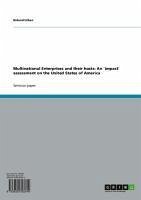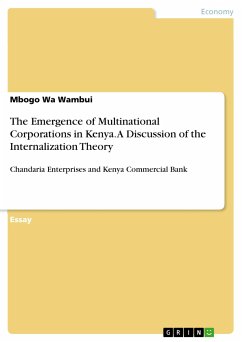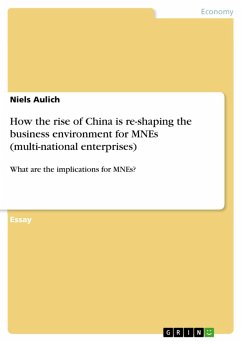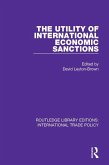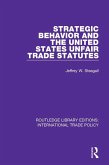Seminar paper from the year 2005 in the subject Economics - International Economic Relations, grade: 1,0 (A), Leeds Metropolitan University, course: Multinational Enterprises, language: English, abstract: The role of multinational companies in the world economy has expanded rapidly over the last decades. Multinationals both react to and a major driving force within the changing world economy1. The globalisation of markets is responsible for the increase in worldwide foreign direct investments. International inflows of foreign direct investment (FDI) amount for around $560 billion in 2003, representing an increase of around 130 per cent over 1990 levels. In terms of its share of global FDI, the United States of America are a major source country worldwide with a share of five per cent of total global FDI inflows in 2003. Furthermore, the United States of America were the last 25 years on position one of the Inward FDI Potential Index published by the UNCTAD23. These foreign direct investments may play a significant role in helping to transfer leadingedge skills, technologies, management styles and other important practises to host economies4. This report is based on secondary research and will assess the impact of Multinational Enterprises on the U.S. economy and is divided into three parts. First of all, I am going to give in my report a brief overview about foreign direct investments into the United States in order to give a good descriptive base for the main part. In the major part I will point out the costs and benefits of foreign direct investments for the United States both in theoretical and empirical terms. After this analysis my report will suggest policy implications based on the assessment of the costs and benefits. 1 Young, St., Hood, N., Hamil, J. (1988) 2 UNCTAD (2004) 3 See Appendix 4 South Centre (1997)
Dieser Download kann aus rechtlichen Gründen nur mit Rechnungsadresse in A, B, BG, CY, CZ, D, DK, EW, E, FIN, F, GR, HR, H, IRL, I, LT, L, LR, M, NL, PL, P, R, S, SLO, SK ausgeliefert werden.

